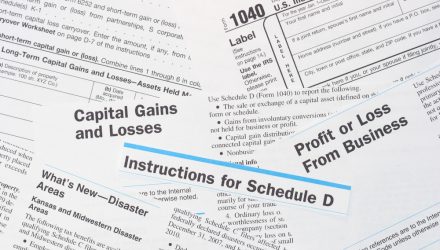ETFs are often praised for their tax efficiency. With higher capital gains taxes expected, more investors may be moving their money to ETFs.
“The booming ETF industry may be set to lure even more cash in the coming years as rich Americans facing higher capital gains taxes look to limit what they owe Uncle Sam,” a Bloomberg article explained.
“President Joe Biden’s plan to double the rate those making more than $1 million a year pay on investment profits would accelerate a shift that’s already seen hundreds of billions of dollars migrate from mutual funds to exchange-traded funds, market watchers say,” the article said further. “That’s because ETFs are generally more tax efficient, spinning off fewer capital-gain disbursements that for some could soon become a lot more costly.”
The dynamic ability to control tax exposure often makes ETFs the more attractive choice.
“If capital gains tax rates are going to be higher, if you have a choice of a structure that helps to defer capital gains and gives you more control over when to recognize those gains, you’d be more inclined to go in that direction,” said David Perlman, an ETF strategist at UBS Global Wealth Management.
Investors Exit Mutual Funds, Enter ETFs
Research also backs up the tax efficiency of the ETF. A Financial Times article published in February noted that recent research shows that inherent tax advantages make the ETF vehicle most appealing.
“A shift in US investor flows away from mutual funds towards exchange traded funds is being driven primarily by a tax loophole, rather than any inherent advantage of the ETF structure, a team of academics has concluded,” the article explained. “In the past decade, US investors have pulled $1tn from actively managed US mutual funds, with a similar amount flowing into ETFs.”
“Although the mutual fund sector is still far larger, the majority of US mutual fund ranges have seen net outflows every year since 2014, according to the Investment Company Institute, even as about three-quarters of ETFs have seen inflows,” the article added.
Academic research by Rabih Moussawi, Ke Shen, and Raisa Velthuis of Villanova University, the Wharton School at the University of Pennsylvania, and Lehigh University, also shows that the preference for ETFs is primarily the result of tax advantages. This runs counter to the prevailing view that lower costs and more liquidity are the primary factors.
“ETFs’ tax advantage is the main catalyst behind the massive flow migration from active mutual funds to ETFs over the last two decades,” they wrote.
For more news and information, visit the Smart Beta Channel.
